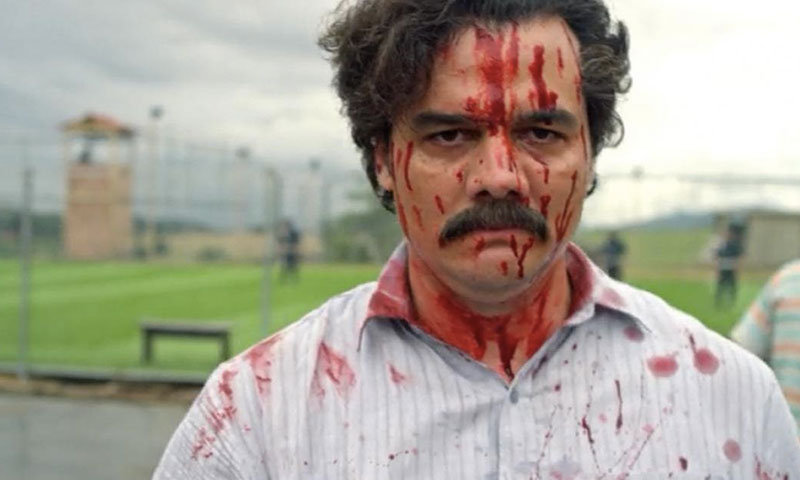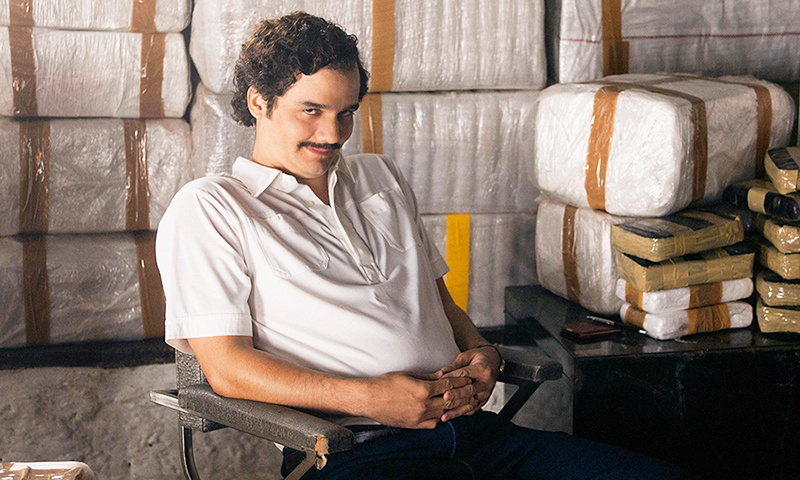Killing Pablo: 8 Parallels Between “Narcos” and the PH War on Drugs
Sep 19, 2016 • Carljoe Javier

Sep 19, 2016 • Carljoe Javier

By Carljoe Javier
The Netflix original series Narcos Season 2 dropped a couple weeks ago. Following Pablo Escobar’s escape from his private prison, it illustrates the heightened military response and the escalation of Colombia’s war on drugs.
In the middle of our own war on drugs, top cop Gen. Bato dela Rosa has expressed interest in visiting Colombia to find out how their war was won (they did not.) While the hit series is a fictionalized look at historical events, certain truths cannot be diluted by hour-long episodes. And these are truths we may need to heed.
Among the many things Narcos does effectively is portray the monstrous Escobar as human. Sure he is doing murderous, terrible things. But he is also hanging out by the pool with his kids, or dancing with his wife in the kitchen.
Just as important is how it portrays the people’s response to him. He gives cash handouts. He builds infrastructure. He takes care of the poor people of Medellin in a way that the government and social services have failed to.
Using this very personal approach, and drawing on Padrino culture, he builds fierce loyalty. People are willing to elect him to office, to protect him at the cost of their own lives, because he has built a reputation for loving and caring for them.
We have to think about how people can be selective about the data they process. They are willing overlook, say, human rights violations, torture, and murder, because they want to focus on the good that their hero has done.
Pablo’s popularity was mainly due to his being a populist. He appealed to the poor, he was one of them. And he regularly spoke up against the oligarchs who dominated politics. He was from the common people, representing the common people.
His anger at the “men of always” was a legitimate anger at being underserved and disenfranchised. The “children of never” are those who grow up in the slums and who never had privilege. They have to scrap and fight and struggle. They have to hustle to get to a point where they can reach the heights that are so easily within reach of the “men of always.”
Society is unevenly structured; look at the distribution of wealth among families. When the poor and underprivileged express their rage and anger, it’s genuine and it’s coming from a place of truth. Inequalities and injustices must be addressed by major state institutions, or people will lose their faith.
Once the War on Drugs begins, no one is spared. The concept of collateral damage introduces itself. We come to accept the deaths of the innocent as sacrifices, or necessary losses, as these are part of any war. The gravity of these acts will inevitably escalate.
“Whether they’re innocent or guilty, I don’t decide. That’s what priests are for, no?” This line was said by Don Berna, whose shifting loyalties and keen strategic mind were partnered with a lack of any moral agency. He was driven by what would be best for his employers, or for him. Through Don Berna we see what happens when moral responsibility is removed from people who are acting. It isn’t anyone’s fault when people are found on the street with cardboard signs calling them drug dealers. If someone gives the order to kill, if a name is on the list, well, that’s not the responsibility of the person pulling the trigger. They are just doing their job.
Pages: 1 2
Input your search keywords and press Enter.
